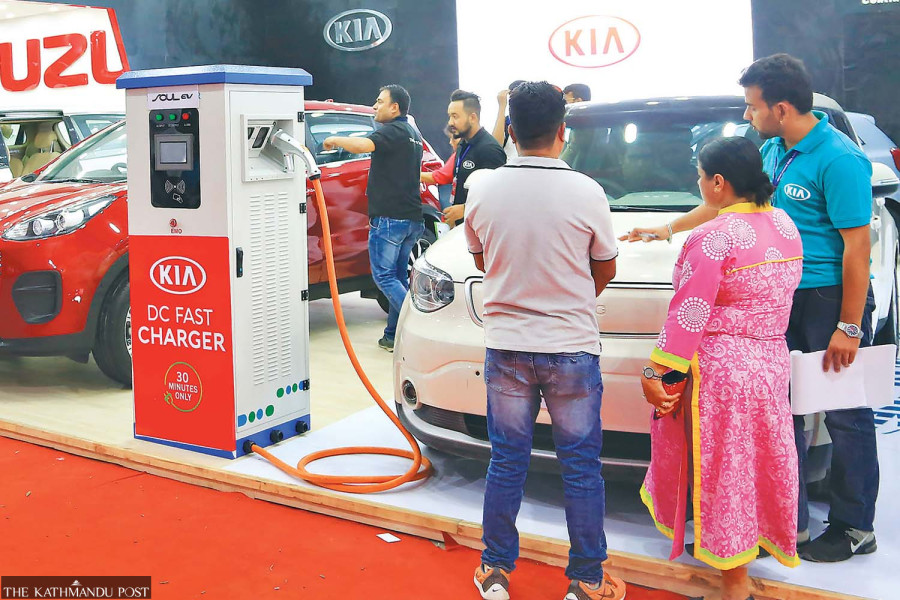Editorial
Mixed signals
Lack of a clear policy on electric vehicles will do great harm to Nepal’s economy and environment.
While countries worldwide are forging ahead on an electric future, Nepal is still struggling to set clear plans and policies in the field. The government’s 10 percent tax hike on electric vehicles (EVs) for the fiscal year 2024-25 comes as a tight slap to the country’s commitment to EV-based mobility by 2030—at a time green transport systems across the country feel ever more important. For this or that reason, consumers here are obliged to line up for a whole day, if not days, to fill up their motor tanks. In a recent case, the underpaid fuel station workers halted fuel supply to private dealers and thronged the state-run stations in Kathmandu. These occurrences are here to stay, reminding us of the need to take the EV transition seriously.
It is widely known that promoting EVs offers multiple benefits. The transition to electric vehicles in Nepal will not only reduce vehicular emissions and clean the air but also discourage the country’s overreliance on fossil fuels, which account for more than 17 percent of the total import bill. This shift, in turn, can help us leverage our under-tapped hydropower potential to build charging stations and export electricity to the two closest neighbours transitioning to green policies. EVs are costly to install, and concerns about insufficient charging stations in Nepal remain, but they are still more efficient and cost-effective than petrol or diesel vehicles. Nepal will also benefit from increased climate funds in the long run if we successfully make air breathable by cutting vehicular emissions through EV adoption. After all, Nepal must have a moral ground and track record of actions to negotiate for these funds and can’t always fall back on the excuse of the country’s negligible contribution to greenhouse gas emissions.
What policymakers seem to be overlooking is the urgency of EV adoption. Their plans and policies on electric vehicles are ambiguous as, on the one hand, they pledge a green energy future while, on the other, they agree on building oil pipeline projects with India. Moreover, they always set ambitious goals and fail to achieve them. For instance, by introducing the Nationally Determined Contributions (NDC) in 2016, the government aimed to increase the share of EVs to 20 percent of all passenger vehicles; however, by 2020, only 1 percent were electric. Now, when people are more interested in buying these green wheels due to the tax cut on EVs last year, the new tax increment is bound to affect their choices. These developments are setbacks to meeting net zero greenhouse gas emissions by 2045 and decarbonising the transport sector by 2030.
It’s high time to come up with clear policies on green growth and execute interventions that wholeheartedly support electric vehicles. This includes installing charging stations and finding ways to sustain them by emulating international practices on repurposing, recycling and managing used batteries. Many organisations, donor agencies and development partners are extending their hand to Nepal in this effort. Failing to establish clear strategies and imposing tax restrictions could mean missing out on the benefits these agencies can provide and the overall change electric vehicles can bring to Nepal. The green energy goal is worth pursuing collectively, as no less than the future of humanity depends on it. Nepal as a responsible global actor must do its bit.



 10.12°C Kathmandu
10.12°C Kathmandu













